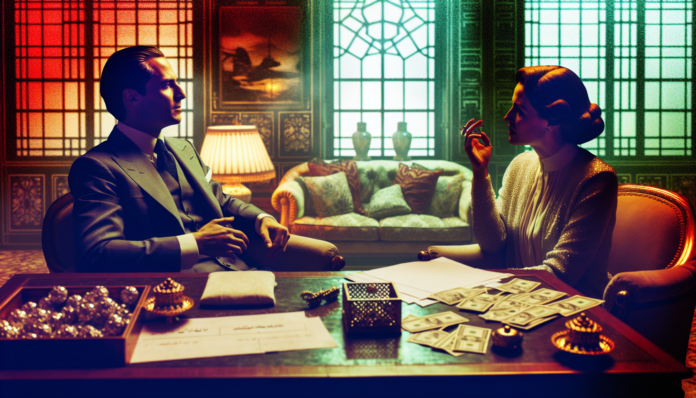Introduction
In the political turmoil of the late 1990s, few scandals captured the public’s imagination like the affair between President Bill Clinton and Monica Lewinsky. This narrative didn’t just unravel a high-profile marriage; it reflected the overwhelming culture of scrutiny and the shifting moral landscape of America at the time. In a nation grappling with issues ranging from civil rights to economic disparities, this scandal would ultimately serve as a litmus test for societal values and the intertwining of love and politics.
The Scandal
The scandal began in 1995, when Monica Lewinsky, a 22-year-old intern at the White House, and President Bill Clinton allegedly engaged in a series of intimate encounters. What started as a secretive affair quickly spiraled into a national spectacle, particularly when the existence of a blue dress containing Clinton’s DNA came to light.
Key moments in the unfolding drama included:
- The Investigation: Independent Counsel Kenneth Starr was originally probing a real estate deal involving the Clintons, but the investigation swiftly morphed into a thorough examination of the affair.
- Public Revelation: Lewinsky’s testimony, coupled with Clinton’s denial of “sexual relations” during a televised address in January 1998, caused a media frenzy.
- Impact on Political Climate: The revelations ignited a firestorm of commentary from both sides of the political aisle, with Democrats rallying behind Clinton while Republicans called for his impeachment.
Quotes from the time reflected the polarized discourse. Conservative commentators argued that Clinton’s behavior undermined the sanctity of the presidency, while liberal voices defended him, citing the hypocrisy of his opponents.
Moral and Cultural Analysis
Society’s reaction to the scandal was a tapestry of shock, intrigue, and debate:
- Media Frenzy: The affair dominated news cycles and late-night talk shows, elevating Lewinsky from an obscure intern to a household name almost overnight.
- Consequences for Those Involved: Clinton faced impeachment by the House of Representatives, but was acquitted by the Senate. Lewinsky, on the other hand, became a public pariah, struggling to reclaim her identity in a world that painted her as a villain.
Fast forward to today, and viewpoints have markedly shifted:
- Changing Perspectives on Consent: Nowadays, discussions around power dynamics and consent are at the forefront of cultural conversations. A similar scandal today might evoke discussions about exploitation and harassment, rather than merely infidelity.
- Digital Age Challenges: In an era of social media and viral phenomena, the repercussions of such a scandal could cause an even more intense frenzy, yet the dialogue would also likely include discussions on mental health and the challenges of public life.
In examining the Clinton-Lewinsky affair, we see a pivotal moment in American history that not only unraveled a marriage but reflected a society grappling with its own values in a rapidly changing political landscape.

